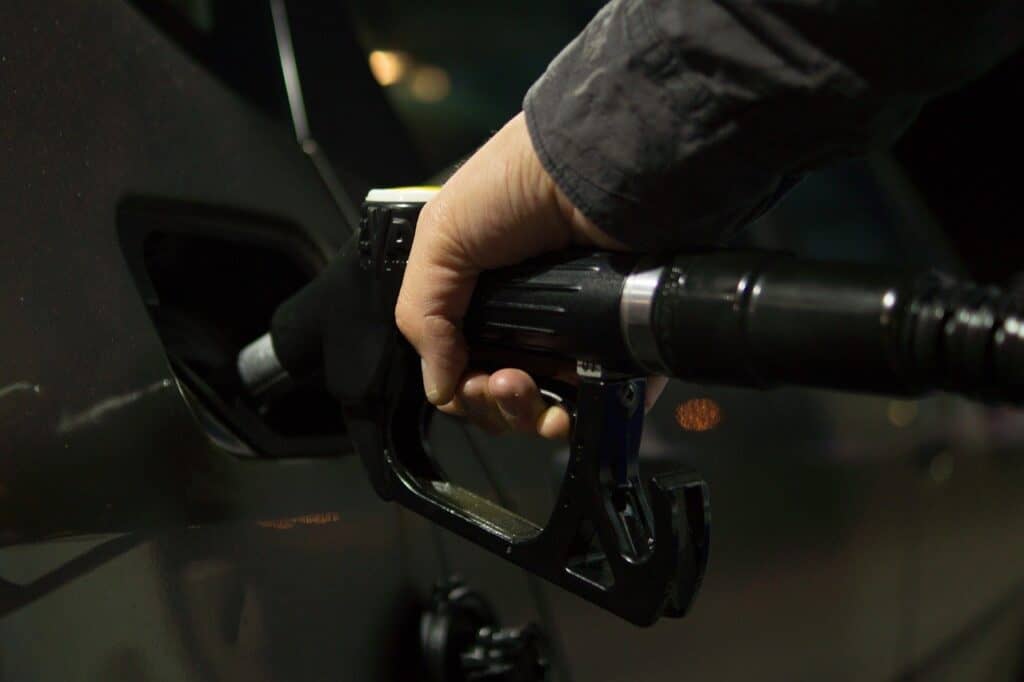Not everyone will have come across Diesel Exhaust Fluid (DEF). But if you run a diesel vehicle, then there’s a good chance that you’ll have been encouraged to use DEF as a means of reducing the pollution that your engine emits while running on diesel. This is because it helps to lower nitrogen emissions. But is DEF a fire hazard and if so, what should we do about it?
No, while DEF is added to diesel fuel, it’s not a fuel in itself and is a non-flammable chemical which is, generally speaking, also not hazardous and not an explosion risk.
That doesn’t mean that you can just chuck DEF around anywhere, mind you, there are a few things you should know, as we’ll see, but it’s a relatively safe product.
Your # 1 priority is keeping your family safe. As a firefighter, I recommend everyone has updated smoke detectors that don’t require battery changes, like these ones from Kidde, a fire extinguisher, like this one from Amerex, and a fire escape ladder if you have bedrooms above the first floor, I recommend this one from Hausse.
Also read: What Makes Something Flammable?
What Is Diesel Exhaust Fluid (DEF)?

DEF is an additive for diesel fuel that’s meant to reduce the amount of nitrogen oxide produced in the exhaust system.
It may also be found as AUS 32 or AdBlue but whatever it’s called, DEF is a solution of urea in water.
The urea makes up 32.5% of the volume of the solution and deionized water the other 67.5%.
DEF is not compatible with every brand of diesel vehicle and it’s important to ensure that the system supports its use before adding it to the engine.
Also read: How Long Is Spilled Gasoline Flammable For?
How Flammable Is DEF Fluid?
DEF fluid is not, under normal circumstances, at all flammable.
Because it is, essentially, just urea in water, any flames that might break out in the urea would be instantly extinguished by the volume of available water.
Even when mixed with diesel, the DEF does not catch fire but rather acts as a catalyst for the nitric oxide reduction reaction.
Also read: Is Diesel Fuel Flammable?
Can DEF Fluid Explode?
DEF itself doesn’t burn, so it won’t explode directly but as with anything that is stored in canisters or bottles, there is a potential explosion hazard by heating the storage container.
The DEF could, in theory, expand enough to break the walls of the container resulting in an “explosion”.
This isn’t particularly likely when it comes to DEF, however, as the bottle it is stored in should melt before the DEF expands enough to cause this kind of hazard.
Also read: Is Hydraulic Fluid Flammable? Yes and No…
How Is DEF used?
DEF is added to diesel fuel and in a concentration that varies depending on the exact system but to roughly 2-6% of the overall fuel volume.
The chemistry is quite complex but the effect of using DEF is to reduce much of the Nitric Oxide (NO2) formed when burning diesel to harmless nitrogen gas, instead.
NO2 causes acid rain if allowed to flow unchecked into the atmosphere, so the use of DEF is very environmentally friendly.
Also read: Is Brake Fluid Flammable?
Is DEF Made From Urine?
DEF is not made from urine, though well done for noticing that urea is, indeed, the chief chemical product in urine.
However, it’s much easier and cheaper to chemically synthesize urea on an industrial basis than to chain up a million cats to collect their urine and then extract the urea.
This is good news for the cats, which can carry on being utterly unbothered by all other occupants of the universe instead of becoming urea-producing machines.
What Type of Hazard Is Diesel Exhaust Fluid?
DEF is non-toxic and safe to handle by human beings but that doesn’t mean it isn’t hazardous at all and the urea content of DEF is corrosive on certain metals (such as aluminum).
That means it is transported in containers that are chosen because they will not corrode when exposed to DEF.
It can be stored in any container that does not corrode include steel, fiberglass, and plastic and while it should be kept in a cool, dry, and well-ventilated area, it won’t present much of a hazard in storage.
Is DEF the same as Diesel?
No. DEF is not the same as diesel.
Diesel is the fuel. DEF is an additive to diesel fuel that affects the production of byproducts in the exhaust systems of engines.
Is DEF Fluid Bad For Skin?
No, in fact, it might even be mildly beneficial as urea is a common component in some forms of makeup and cosmetics.
However, the sensible thing to do if you spill DEF on your skin is not to sit around waiting to see if it cures your acne, but rather just to wash it off using water from the tap.
You shouldn’t allow your hands to stay soaked in DEF, not because it will hurt your hands, but because you might come into contact with something that can be corroded by DEF and damage it.
Is Diesel Exhaust Fluid Hazardous?
Apart from the corrosive properties of DEF, DEF is claimed to not be hazardous to human beings.
Is It OK To Mix Different Brands of DEF?
Yes, DEF is DEF and while brands may vary slightly in their overall makeup, there’s nothing in any DEF brand that makes it incompatible with others.
Just make sure that both brands are of the right standard (such as ISO 22241) for the engine that they are used in and feel free to mix them up.
Is DEF Bad For Concrete?
Yes. Concrete can be corroded by DEF and it’s important that you clean up any DEF spilled onto concrete (just use water to remove it).

